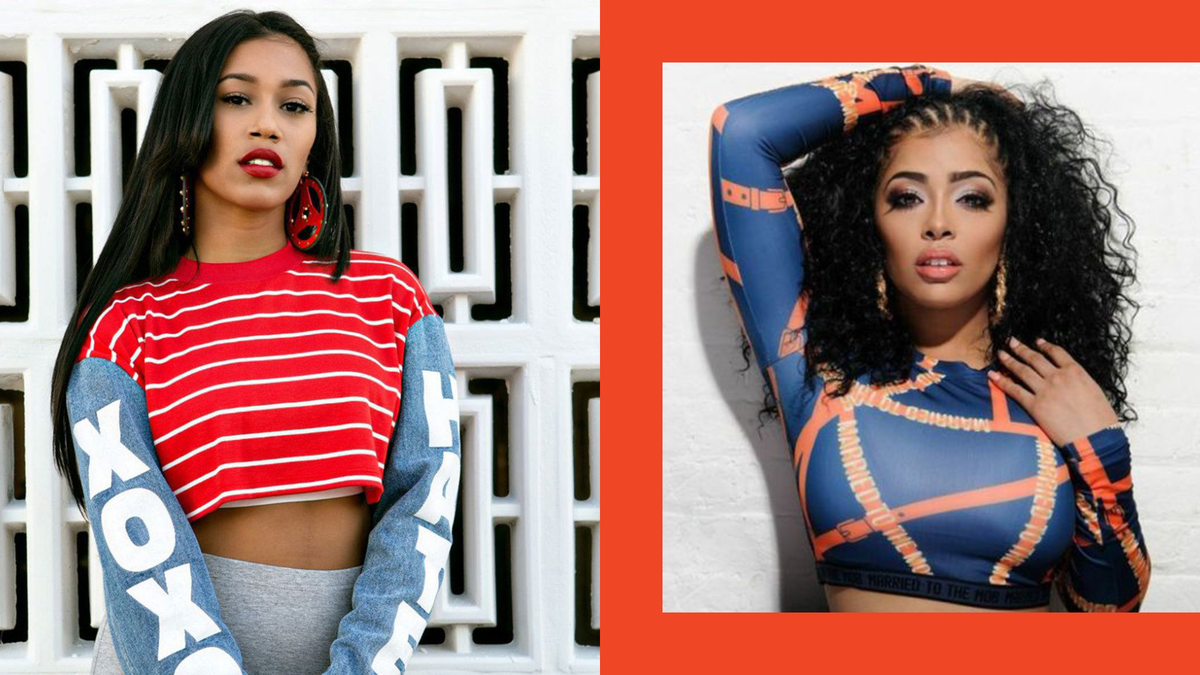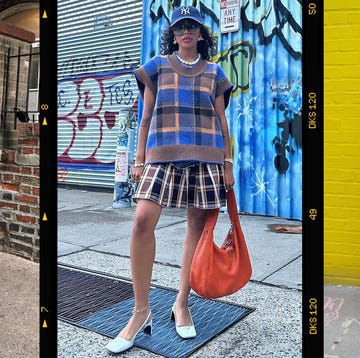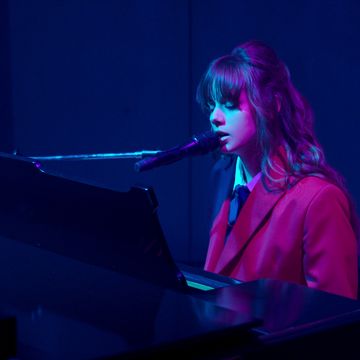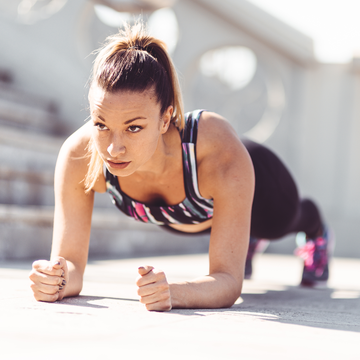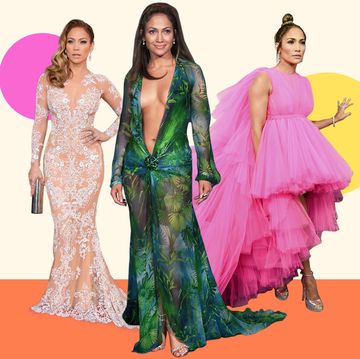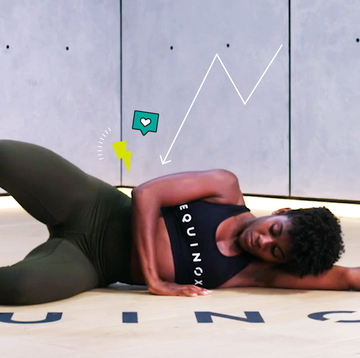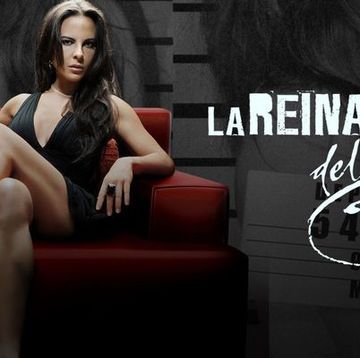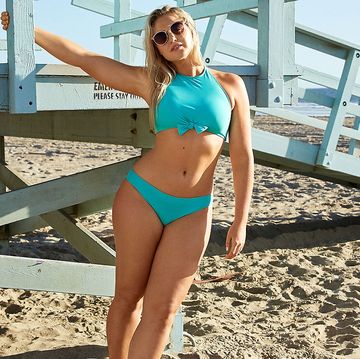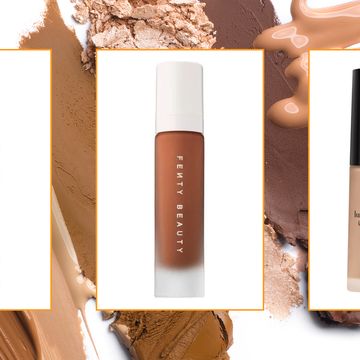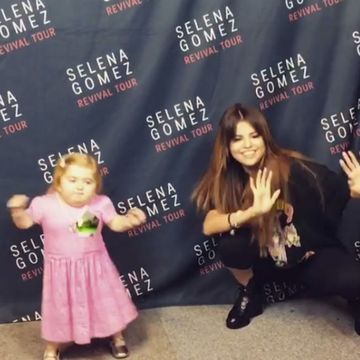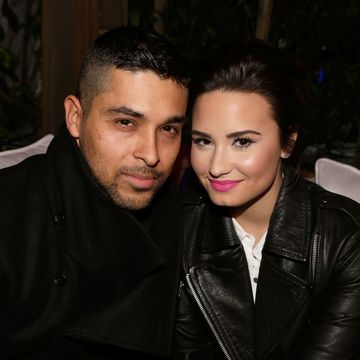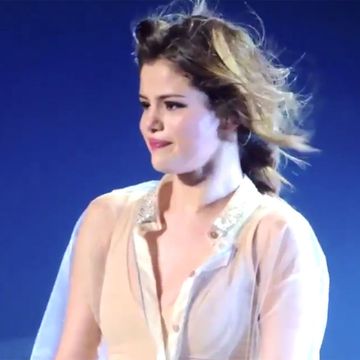Think "Latinas in hip-hop," and you're more likely to conjure up images of curvaceous video vixens than rappers spitting bars in a booth, but the truth is that Latinxs, including Latinas, have always been a part of the culture. In fact, as hip-hop scholar Raquel Z. Rivera reminds us in her book New York Ricans From the Hip-Hop Zone, the music, dance, and art that is today known as hip-hop was co-created by African Americans, West Indians, and Puerto Ricans in the Bronx, making the genre an intrinsic part of U.S. Latinx culture.
Despite this history, Latinas—not unlike female rappers of other racial and ethnic identities—have largely been underrepresented in the genre. While some have been known to make early hits, like Hurricane G’s 1997 jam “Somebody Else” and Angie Martinez 2003 bop “If I Could Go,” few Latinas over the decades have been able to garner the level of superstardom reached by Latino artists, specifically Big Pun, N.O.R.E. and AZ.
This began to change in 2017, when Cardi B dropped her explosive major-label debut "Bodak Yellow." The Afro-Latina rapper, born Belcalis Marlenis Almánzar, is arguably the biggest female artist in hip-hop today, and she has consistently used music to embrace her Dominican culture, collaborating with rising Spanish-language acts and amplifying the issues impacting Latinxs across the country.
But while Cardi is undoubtedly the most recognizable Latina in hip-hop these days ("WAP" will never not be stuck in my head, you?), she’s far from alone. Throughout the U.S. and Latin America, Latinas are among the genre’s leading ladies, so here are the ten biggest Latina rappers who deserve your immediate attention.
Cardi B
One of the biggest names in hip-hop, Cardi B has broken barriers for women in the genre. When the Dominican-Trinidadian rapper from the Bronx dropped her debut studio album, Invasion of Privacy, in 2018, she made history. The project, featuring numerous chart-toppers that preach female sexuality and financial independence, debuted at No. 1 on the Billboard 200, broke several streaming records, picked up the Grammy Award for Best Rap Album (making Cardi the first and only female solo rapper to win in the category), and was named Billboard’s top female rap album of the 2010s. The Afro-Latina’s astronomic ascendance in music has also included several bilingual collaborations with Spanish-language rappers, including “I Like It,” a Latin trap hit featuring Bad Bunny and J Balvin that Rolling Stone recently called "the best summer song of all time."
Ivy Queen
Ivy Queen is undoubtedly la reina de reggaetón. The Puerto Rican rapera, also known by her epithets "La Diva," "La Potra" and "La Caballota," was a trailblazer for women in a genre that, nearly three decades after its birth and recent global revival, continues to be dominated by men. Often a lone female voice in reggaetón in the late 1990s and early '00s, Ivy Queen used her talent and power to center womanhood. In her biggest hit, 2003's “Quiero Bailar,” she defends a woman's right to dance as provocatively as she wants without facing harassment or violence from male observers. Her talent and empowering lyrics continue to inspire a new generation of Latinas entering el movimiento, a catchall that includes Spanish-language genres like reggaetón, Latin trap, Latin R&B, dembow and more.
Ana Tijoux
Chilean artist Ana Tijoux is one of the most prolific political rappers from Latin America. The daughter of Chilean exiles who fled to France during Augusto Pinochet's dictatorship, Tijoux's music is deeply inspired by liberation struggles and social justice movements. Whether uplifting Indigeneity, critiquing machismo or drawing attention to government repression and people-powered revolutions around the globe, Tijoux’s information-packed lyrics spark solidarity and imagine a free and just world.
Melii
Melii's rise from brash Harlem underground rapper to dexterous mainstream heavy-hitter seems like it happened over night. After going viral for her covers on YouTube, the Afro-Dominican artist officially introduced herself as a barbed bilingual rapper in 2018's “Icey." She followed up the self-indulgent track with a series of bangers, features—including Meek Mill's "Wit the Shits"—and tours before releasing her debut album phAses in 2019. The raspy-voiced rapper writes bars and hooks that effortlessly blend Spanish and English without killing vibes for listeners who aren’t fluent in both languages.
Rico Nasty
Genre-bending rapper Rico Nasty is one of the most exciting artists coming up in hip-hop. Infusing grunge and punk rock with rap, the rising artist from Prince George's County, Maryland, captured the world's attention with her unique musical blend and hard delivery in 2018 singles like "Smack a Bitch" and "Poppin." While she has been feeding fans' appetites for new material with multiple mixtapes, tours and musical collaborations, many are still hungry to hear the scratchy-voiced artist, who is half-Puerto Rican, half-African American, on her debut studio album Nightmare Vacation, slated to release this December.
Goyo
Since the year 2000, Colombian hip-hop group ChocQuibTown has been fusing Latin American genres, Afro-Latin rhythms and, more recently, electronic vibes to become one of the most successful acts in the South American country. At the group's helm is rapper and singer Goyo, born Gloria Martinez, an Afro-Colombian artist popular for celebrating Blackness and inspiring women to chase their dreams. While rooted in the culture, style, and pride of Chocó, the Afro-Colombian department where the members grew up, the group (they've been compared to the Black Eyed Peas, FYI) has witnessed far-reaching success, picking up multiple Grammy and Latin Grammy nominations and awards.
Nitty Scott
Poet-turned-rapper Nitty Scott is one of the most critical voices in hip-hop. Since entering the rap game in 2010, the Michigan-born, Orlando-raised and Washington, D.C.-residing emcee has consistently put out tracks that tackle sexual violence, challenge machismo, celebrate Blackness, womanhood and queerness, and demystify mental health. Her so-called "conscious storytelling" has helped heal and empower listeners struggling to overcome past traumas, while inspiring a generation of Afro-Latinas to explore their identities and histories much like she did in her 2017 album CREATURE!, which XXL described as a “rebirth.” The half-Puerto Rican, half-African American rapper lists artists like Mos Def, Stevie Nicks, and Sam Cooke among her strongest musical influences.
Danay Suárez
Cuban rapper Danay Suárez has performed with hip-hop pioneers Public Enemy before an audience of more than 100,000 people, many of them singing her songs. But Danay doesn't think of that concert as her biggest moment in hip-hop. Instead, she says that her greatest joys come from seeing the tears in her fans' faces and knowing she affected their lives in a positive way. Hailing from Havana, Danay's sound infuses hip-hop, jazz, and Cuban stylings.
Bia
Boston rapper Bia, born Bianca Landrau, arrived on the rap scene in 2014, when she was a cast member on the first two seasons of Oxygen’s Sisterhood of Hip-Hop. Upon leaving the T.I.-produced series, the Puerto Rican-Italian artist joined Pharrell's I Am Other record label, in partnership with RCA Records, and released mixtapes like #CHOLASEASON and global hits like 2016's bilingual bop "Safari" with J Balvin and Pharrell. Recently, the bubbly emcee departed from I Am Other, and, while independent, dropped jams like "One Minute Warning" and the Rihanna-approved "Best on Earth," a collaboration with artist Russ that peaked at No. 46 on the Billboard Hot 100. With back-to-back hits, Bia scored a new record and licensing deal with Epic Records this year.
DaniLeigh
For DaniLeigh, stardom didn't land in her lap overnight. But the South Florida-born Dominican-American rapper-singer-dancer triple-threat is proof that talent and hard work eventually pay off. Born Danielle Curiel, the Latina began dancing as a tween and posting covers on YouTube at the age of 14. Four years later, she captured the attention of pop legend Prince, who had the then-18-year-old DaniLeigh direct and write the music video treatment for his 2014 song “Breakfast Can Wait.” From there, the rising act moved to LA, first dancing on stages with Latin heavyweights like Daddy Yankee and Pitbull and, more recently, releasing R&B and trap bangers. Signed to Def Jam Records in 2017, DaniLeigh has worked with artists like Lil Baby, Chris Brown, G-Eazy and DaBaby, and released one LP, 2018's The Plan, with her second studio album slated to drop this year.
